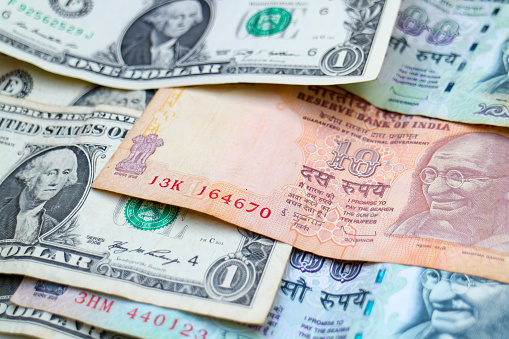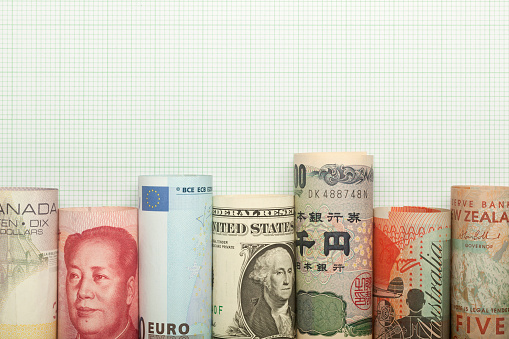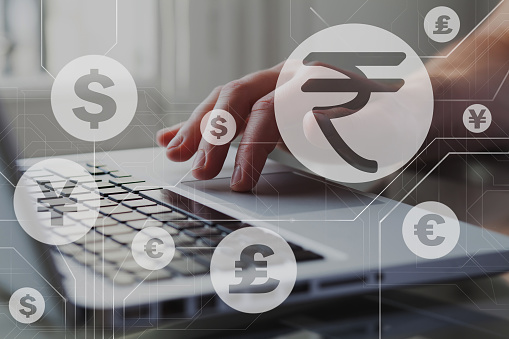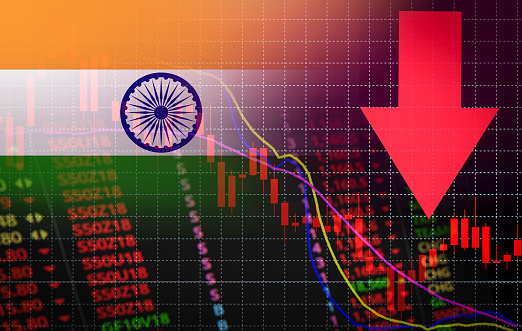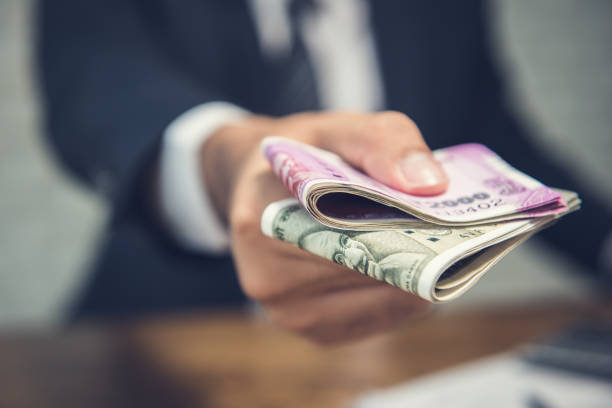Traveling abroad for a trip will require you to exchange dollars at some point. Unfortunately, some financial institutions offer poor exchange rates, and trading currency with them is expensive. You need currency exchange services that offer better exchange rates. So, where can you change foreign currency without paying high fees?
This article gives you where you can get competitive exchange rates in the U.S. and overseas. In addition, it covers the place you should avoid when you want to exchange foreign currency and other valuable tips.
Exchanging Foreign Currency At Home And Abroad
Below are places that offer competitive exchange rates where you can buy foreign currency before your trip and after reaching your destination.
Where To Exchange Currency In The U.S. At The Best Rates
-
Bank Or Credit Union
Firstly, banks and credit unions are arguarbly the best places you can exchange currency when you want to travel. You can choose local or major banks which have ATMs in foreign countries. Using a bank or credit union will find the exchange rate that’s fair in your destination by checking reputable currency exchange websites. You can also use an online currency converter to know currency exchange rates.
Using this option is straightforward because most financial institutions will have foreign currency to sell to and charge the exchange rates only without additional fees. For instance, established banks like Wells Fargo and Bank of America offer these services. The former provides 70 currencies you can use in over 100 countries, while the latter exchanges currencies of over 100 countries.
Your local bank branch may have the foreign currency in cash, and you can walk in to exchange. Alternatively, you can order online for home delivery, which the bank can make possible within the same day, depending on your bank, location, and the currency you need. It might take days if the currency is less frequently requested.
Credit unions also offer better rates because profit to credit union stockholders isn’t part of the vision for such financial institutions. Therefore, they can pass surplus money to you through lower rates and fewer fees. Note that you must ensure that you have received authentic money when you exchange in a bank or credit union.
-
Online Bureaus And Online Currency Convertors
You can also use centralized online currency exchange platforms like U.S. First Exchange and Currency Exchange International (CXI). These platforms also offer fair exchange rates. In addition, you can conveniently order foreign currency through these websites. To do so, you will buy your local currency by paying through a transfer from your checking account, savings account, or credit or debit card. The agent will process the transaction and deliver using the safest means.
Where To Exchange Currency Abroad Without Paying High Fees
-
Your Bank’s ATM Network
You may need more cash in a foreign country, and your bank’s ATM network is the best place to get dollars without unnecessary fees. It will help to check if your bank has affiliates or an ATM network in the country you are visiting. The ATMs will have your bank logo, which helps to identify them.
Suppose you don’t find one; you can still use foreign ATMs. But, you will have to reduce the number of withdrawals and ensure that you withdraw large amounts at each withdrawal. Doing so reduces foreign transaction fees and international ATM fees charged for withdrawing in a foreign ATM.
Some established banks like Schwab Bank offers accounts that are international travel tailored like the High Yield Investor Savings Account. Such accounts include a debit card which has no foreign transaction fees. Additionally, the accounts have unlimited reimbursement supposed you use foreign ATMs.
Places To Avoid Exchanging Currency Due To High Fees
Some places charge high currency exchange fees and add extra fees, making them expensive. It would be best if you avoid them. Such places include:
-
Currency Exchange Counter Or Airport Currency Exchange Kiosk
Exchange counters found in transportation hubs and airport currency exchange kiosks are known to charge exorbitant foreign exchange fees. These entities’ sole purpose is to make a profit and take advantage of your desperation for dollars. You will incur large fees if you use these currency exchange points. Their conversion rates aren’t favorable either because they don’t use the standard market exchange rate. It will help if you avoid them unless necessary.
-
Private ATMs
These refer to ATMs owned by unregulated institutions such as grocery stores, convenience stores, and check-cashing entities. They are convenient and fast but using them comes with many risks. For starters, they are insecure and can be used by cybercriminals to steal your banking information. They also charge high transaction fees, which should be another reason to avoid them.
-
Hotels
Some hotels exchange currency, although it would be best if you avoid using them. You will likely pay a high exchange rate since financial authorities don’t regulate the hotels. Unless necessary, it will help if you look for a cheaper alternative.
Alternatives To Currency Exchange
Having large sums of money in cash while traveling raises eyebrows at customs inspection. In addition, it’s unsafe and a hassle. Fortunately, there are alternatives you can use.
-
Traveler’s checks
These are almost phased-out paper checks issued by largescale banks with prepaid fixed amounts. You pay an exchange fee when buying them. On the upside, they are replaceable in case you lose them. You can also get a refund if you memorize its unique serial numbers. Furthermore, you won’t pay a withdrawal fee when you use it; they will last your whole trip because they don’t expire.
-
Credit Cards And debit cards
You can also use prepaid cards, which are safe. However, each of them has its demerits. For instance, prepaid debit cards may attract other extra fees when you use them. They also have spending limits which can be disadvantageous. But on the upside, it can help you budget and protects you from fraud.
On the other hand, credit cards give you access to more money but also charge transaction fees unless it has no foreign transaction fee charges. However, there is the risk of losing your credit card or the information falling into the wrong hands. Being a seasoned traveler, it will help if you get credit card travel insurance to protect you from such misfortune. Credit and debit cards on a trip are essential because you can switch to one with favorable transaction fees when needed.
Using Cash In Comparison To Credit For Foreign Transactions
Thanks to technology, there is no need to walk with cash as you travel to a foreign country. You can take credit and credit cards than have no-foreign-fee features. Specific banks like Capital One, Chase, and Bank of America issue these cards. The major credit card companies also issue these non-foreign transaction fee cards.
Other Valuable Travel Tips
There’s a lot of information on how to make the most of your trip without incurring extra costs. Aside from the non-foreign transaction fee cards, you can try the following:
-
Inform Your Bank And Credit Card Company Before Traveling
Due to the rise in cyber crimes, many banks and credit card companies can limit access to your card if they suspect fraud. As a result, you will be stuck in a foreign land, and sorting the card out may be a hassle depending on your location. Therefore, it will be best to inform your bank and credit card companies beforehand about your traveling plans.
-
Use International Banking Applications
International banking applications, such as Revolut and Wise, can come in handy. These applications help you to manage money, hold multiple currencies, and you can use them to transfer money to various countries. If you are a frequent traveler, it will help if you install such apps because they can help you to avoid the ever-changing exchange rates.
-
Find Out About ATMs And Transaction Limits
Before traveling, it would be best to find out about ATMs in your bank and any existing transaction limits. Doing so will help you to prepare so that you don’t run out of cash while on your trip. If there are limits or the bank doesn’t have ATMs in the country, you should order enough currency online to sustain yourself.
-
Pay In Local Currency
You should always pay using local currency when on your trip, which will help you avoid hidden extra fees that a merchant may charge for the transaction. And if possible, ensure that you compare prices before using some services or buying local goods. Some merchants may charge higher, especially if you pay in foreign currency.
FAQs Regarding Currency Exchange
How will you know whether you are getting the best exchange rates?
The best way is through live rate comparison with your currency exchanger or bank. You can get the information by checking exchange rates online. To get fair rates, you should use authorized service providers. If you are in the U.S., your bank or credit union should be your first stop. But if in a foreign land, you can do a background check of the exchange service provider before engaging them.
Can you avoid transaction fees when exchanging currency?
Yes, you can avoid transaction fees by using your bank to exchange or other like methods. Credit unions can also offer exchanges without transaction fees. Some specific credit and debit cards are free. However, you must read the fine print of your financial service provider to know the ones offering free services.
Which is better, exchanging currency at home or abroad?
Exchanging currency at home is better compared to abroad. You will likely get better rates and faster services from your local financial institution. In addition, you can order cash online and receive it promptly, which isn’t possible while abroad. Exchanging currency abroad also comes with the risk of attracting unwanted attention. Therefore, it will help to exchange currency at home if you travel with cash.
How much foreign currency can you carry on a trip?
You can carry any amount of money when departing from the united state as an international traveler. However, an amount exceeding $10,000 requires reporting by filling out U.S. Customs and Border Protection Declaration Form 6059B and FinCEN Form 105. These forms declare the amount you are traveling with.
What are the risks of currency exchanges?
Exchanging currencies come with the risk of losses due to currency fluctuations. Several factors, like changes in policies, government, political turmoil, or natural calamities, affect currency exchange rates. When there are uncertainties, currency exchange puts you at risk of losing some of your money.
Can you wait for better exchange rates?
Yes, you can wait for better exchange rates if the current ones aren’t favorable for some reason. However, it will help to note that the situation may worsen if the factor affecting the exchange rate continues. Therefore, the best way is to search for an exchange service provider and exchange at the current rates.
What will you do with leftover foreign currency?
Many banks exchange leftover currencies from trips. You can also donate to a charity where it can be exchanged, or you can give them to your friends. Whichever the case, you shouldn’t worry about possessing such currencies.
Conclusion: Where to Exchange Currency Without Paying Exorbitant Fees
Traveling to a foreign country calls for currency exchanges. However, it would be best to exchange foreign currency without incurring high transaction costs and at a poor exchange rate. There are places like airport kiosks and other unregulated institutions that you should avoid.
It would help if you used options like banks and credit unions which charge reasonable transaction fees and offer the best exchange rates. In addition, you can use ATMs that are within your bank’s network, which will have no charges.
And if you find carrying cash overwhelming, you can use options like credit or debit cards, which are safer and more convenient. To be safe, you should use the information in this article to prepare your finances as you plan your trip to a foreign country.

